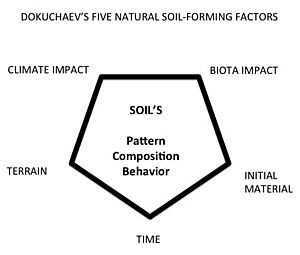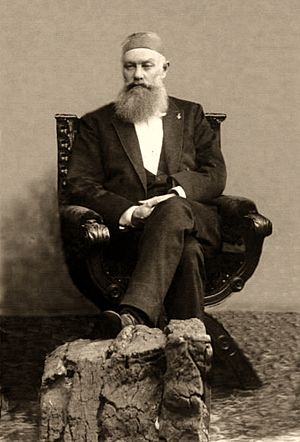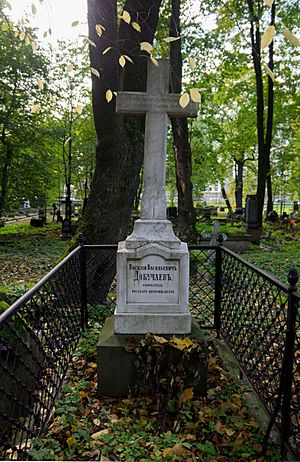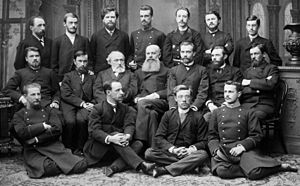Vasily Dokuchaev facts for kids
Quick facts for kids
Vasily V. Dokuchaev
|
|
|---|---|
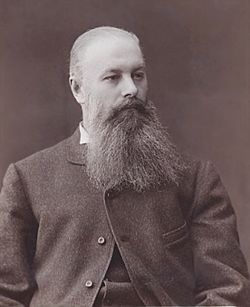
V. Dokuchaev (Saint Petersburg, 1888)
|
|
| Born | 1 March 1846 Milyukovo, Sychyovsky Uyezd, Smolensk Governorate, Russian Empire
|
| Died | 8 November 1903 (aged 57) Saint Petersburg, Russian Empire
|
| Nationality | Russian |
| Known for | Modern soil science founder |
| Scientific career | |
| Fields | Geography, geology, soil science |
| Institutions | Saint Petersburg University |
| Influenced | Vladimir Vernadsky, Konstantin Glinka, Sergey Kravkov (agronomist), Andrei Krasnov, Vladimir Prokhorovich Amalitskii, Feodor Yulievich Levinson-Lessing, Vladimir Andreevich Tranzschel, Dmitri Ivanovsky, Gavril Tanfilyev, Georgy Fedorovich Morozov |
| Signature | |
 |
|
Vasily Vasilyevich Dokuchaev (Russian: Васи́лий Васи́льевич Докуча́ев; 1 March 1846 – 8 November 1903) was a geologist and geographer. He is famous for starting the study of soil science. He was from the Russian Empire. A city in Ukraine, Dokuchaievsk, is named after him.
Discovering Soil Secrets
Vasily Dokuchaev is often called the "father of soil science." This is the study of soils in their natural environment. He helped develop this field in Russia. He was one of the first to study different soil types across large areas. His work truly "put soils on the map" for scientists.
He introduced a new idea about why soils are different in various places. Before him, people thought soil was just broken-down rock. Dokuchaev showed that other things matter too. These include the climate, the shape of the land, and how long the soil has been forming.
Using these ideas, he created the very first system to classify soils. Many other soil scientists quickly adopted his ideas. This included a famous scientist named Hans Jenny.
Dokuchaev's research led to a system that describes five main factors for soil formation. He found these factors after studying Russian soils in detail in 1883. His most famous book is Russian Chernozem (1883). Thanks to his work, many Russian words became part of soil science around the world. Examples include chernozem, podsol, gley, and solonets.
A crater on Mars is named after him. Also, the Dokuchaev Award is a very important prize in soil science. It is like the Nobel Prize for this field. The International Union of Soil Sciences created it to honor him.
See also
 In Spanish: Vasili Dokucháyev para niños
In Spanish: Vasili Dokucháyev para niños
- Aleksandr Dokuchayev
- History of soil science
- List of Russian Earth scientists
- List of prizes known as the Nobel of a field
 | Georgia Louise Harris Brown |
 | Julian Abele |
 | Norma Merrick Sklarek |
 | William Sidney Pittman |


